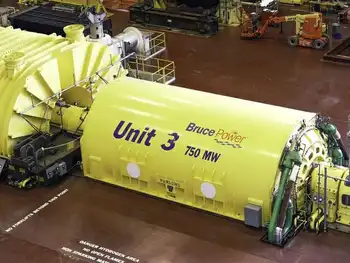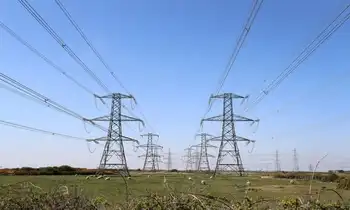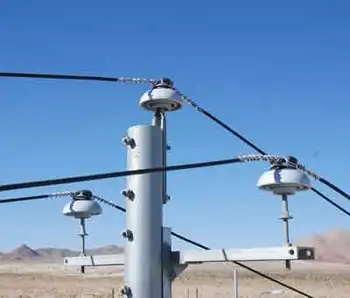Man starts power company to undersell major utilities
An electrician for 12 years, Pearsall owns his own electrical contracting company. But in March he formed Public Power & Utility Inc. in New Milford, hoping to supply electricity to customers of Connecticut Light & Power and United Illuminating at a lower price than the state's two largest utilities can offer.
"I was looking to create a company in Connecticut to compete against other suppliers in the state in our deregulated market," Pearsall said. "I created the company to lower our customers' electric utility bills - and not just by a few points, but by providing significant savings throughout the state, while having a healthy, sustainable margin for our employees."
PP&U joins about a dozen companies offering electricity to CL&P or UI residential or business customers at a lower rate.
The state legislature restructured the electric marketplace to create competition among electric suppliers, hoping it would drive do n prices. CL&P's and UI's rates have risen dramatically in the past couple of years as the cost of the fossil fuels used in generating electricity have soared.
The utilities no longer generate their own electricity; instead, they distribute power generated by others, but have had to raise rates to pay for the power they purchase. Unlike most of the other suppliers, though, PP&U offers one rate for both residential and business customers: 10.484 cents per kilowatt hour.
That's nearly 10 percent less than CL&P's rate for residential customers, and nearly 12 percent less than UI's residential rate. Pearsall said he projects his rate to drop to 9.894 cents per kilowatt hour in February. The New Milford company also does not require customers to sign contracts, or to put down a deposit.
"Customers can enroll and unenroll at any time for any reason," Pearsall said. Customers can enroll by calling the company's toll free number, 888-354-4415, or by visiting its Web site at PP-U.com and filling out an online application. Customers who do switch will still receive a bill from CL&P or UI, but the generation portion of the bill will reflect the price offered by PP&U.
CL&P and UI collect the money for the alternate suppliers and forward the appropriate amount to them. CL&P and UI also continue to handle power outages and other concerns related to delivering electricity. Pearsall's power supply company, based at 101 Park Lane in New Milford, has 18 employees, a majority of whom work as brokers signing up new customers. He said he plans to open satellite offices in Danbury, New Haven and Waterbury, but could not say when those offices will open or how many people will work at each location. Pearsall, who said it took 2 1/2 years to form PP&U, would not say how many customers he has signed up so far.
He did say that some customers of his electrical contracting business are now also customers of PP&U. According to the latest figures available from the state Department of Public Utility Control, 60,806, or 5 percent, of CL&P customers had switched to alternate suppliers as of Oct. 31, including 46,509 residential customers. In addition, 27,064, or 8 percent, of UI customers had switched, including 18,469 residential customers.
Dominion Retail Inc. is far and away the largest alternate supplier in the state, serving nearly 47,000 CL&P customers and nearly 18,000 UI customers. The number of CL&P or UI customers being served by PP&U was not available from the DPUC, because the company received approval to begin operating in September and only began signing up customers last month, according to Pearsall.
Beryl Lyons, spokeswoman for the DPUC, said PP&U, like any company applying to supply electricity, had to show state regulators it has "the financial, managerial and technical resources to be able to provide the service" before being licensed. Pearsall, who grew up in New Milford, said he has not spent much time worrying about competing with major electricity suppliers such as Dominion Retail, Consolidated Edison Solutions or Direct Energy.
"I probably didn't think about it," Pearsall said of competing with much larger companies. "I just want to be able to provide this same type of service for our customers without requiring deposits and at the lower possible rate we could sustain." He added that he's confident he can continue to offer rates lower than CL&P's and UI's.
"It's taken me a long time to just be able to open our doors," he said. "I'm pretty excited about the future."
Related News

Three Mile Island at center of energy debate: Let struggling nuclear plants close or save them
THREE MILE ISLAND - Three Mile Island is at the center of a new conversation about the future of nuclear energy in the United States nearly 40 years after a partial meltdown at the Central Pennsylvania plant sparked a national debate about the safety of nuclear power.
The site is slated to close in just two years unless Pennsylvania or a regional power transmission operator delivers some form of financial relief, says Exelon, the Chicago-based power company that operates the plant.
That has drawn the Keystone State into a growing debate: whether to let struggling nuclear plants shut down if they cannot…





